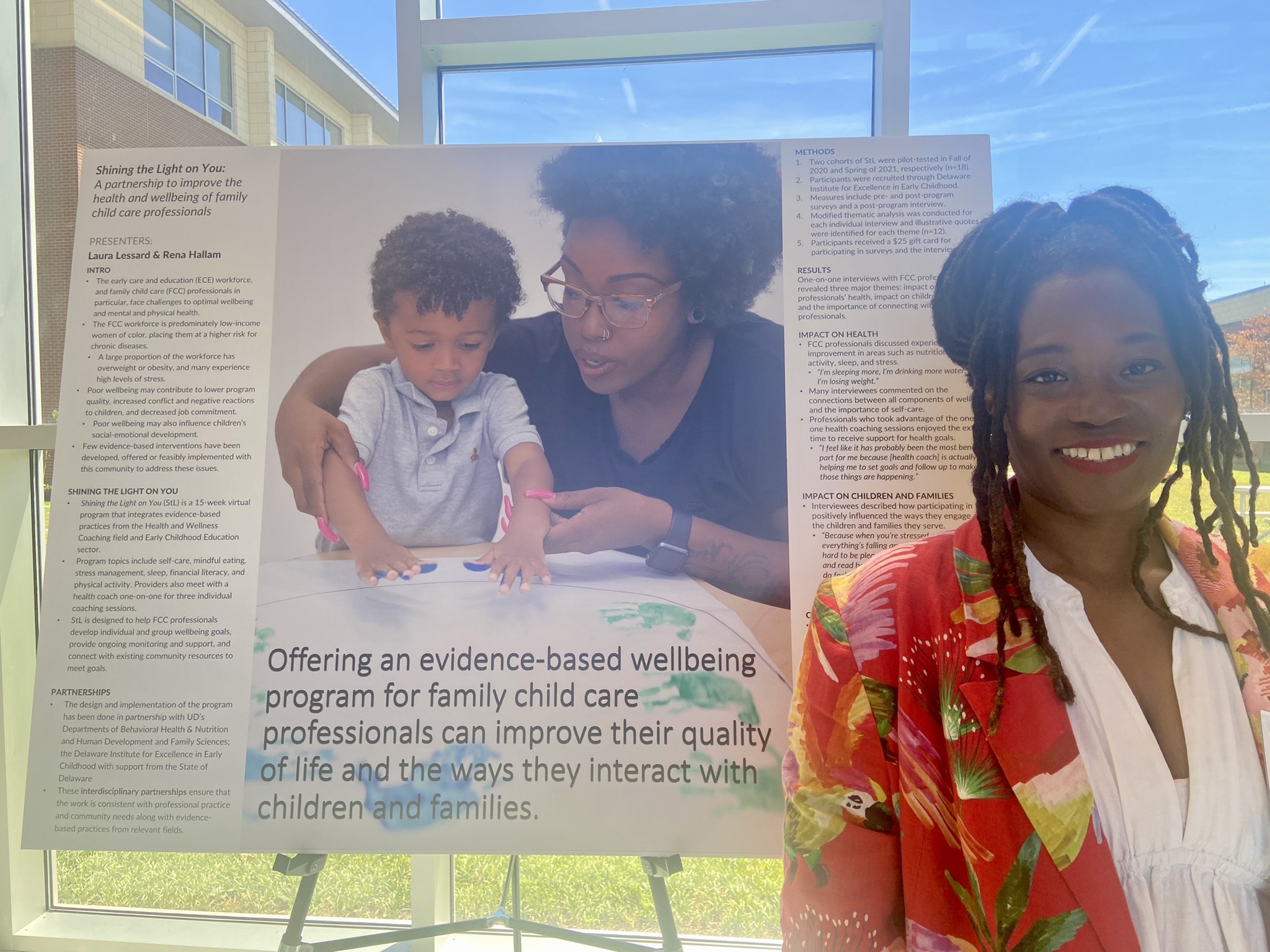UD Health and Wellness Initiative program provides professionals with support
A family child care professional typically starts their day before dawn, caring for their own family before their little ones arrive for a day of activities and learning. Twelve hours later, the last child is picked up, and because of the safety and health measures related to the pandemic, the cleaning and disinfecting begin, only to start the routine again the next day.
Family childcare educators operate more than half of Delaware’s child care programs, caring for a significant number of Delaware’s young children, but who takes care of them?
The University of Delaware is helping through its initiative “Shining the Light on You,” a 15-week virtual program that provides family child care professionals with the opportunity to learn about health and wellness topics important to them.
“We know from research that the well-being of the child care educators contributes to positive outcomes for children,” said Rena Hallam, director of the Delaware Institute for Excellence in Early Childhood (DIEEC). “This is particularly true for family child care providers.”
DIEEC, an organization within UD’s College of Education and Human Development, partnered with Associate Professor Laura Lessard, and faculty in UD’s College of Health Sciences to create this evidence-based approach to improve the health and well-being of family child care professionals. The program integrates best practices from health and wellness coaching and early childhood education. It is co-facilitated by a board-certified health and wellness coach and an early childhood expert.
“Self-care looks differently for every individual,” said Sarah Albrecht, UD health and wellness coach and co-facilitator. “Therefore, we cover a broad range of topics depending on our participants. We have worked on stress management, mindfulness, habits, self-compassion, nutrition, mindful eating, physical activity, yoga, sleep, time management and financial wellness.”
All the topics are addressed with a focus on the demands faced by family child care educators.
“When designing this program, we intentionally integrated the two worlds — the health promotion world and the world of the family child care educator,” said Lessard. “We wanted to make sure all the supports were implemented with the early childhood educator’s reality in mind.”
Kyma Fulgence-Belardo, the initiative’s co-facilitator, who served as a family child care educator for years, embraced mindfulness to help her navigate her days in the field.
“Our goal is for participants to live life versus having the feeling of just coasting,” said Fulgence-Belardo. “To do this, you need to address certain areas of your life that need attention. You need to look in and do the work for you.”
This fall marks the fourth time this initiative has been offered. In each cohort, about 15 family child care professionals participate in a combination of supports, including weekly group health coaching sessions, individual health coaching and check-ins through group chats.
Marlette Lofland, a family child care professional in Sussex County, participated in one of the cohorts. She now meditates before beginning her program, eats better and has found a way to incorporate exercise into her day.
“I learned how to take care of myself, and I don’t feel bad about it,” said Lofland. “The trainers and coaches set up a plan for me that worked with my lifestyle. I have a new look at life and treat myself better than before.”



